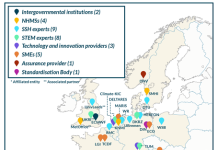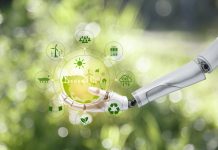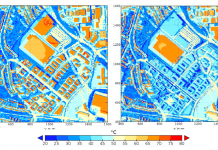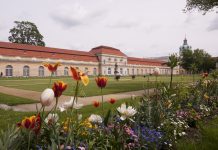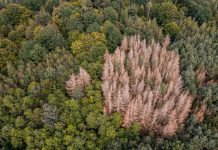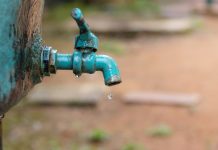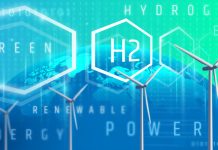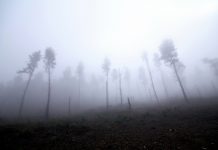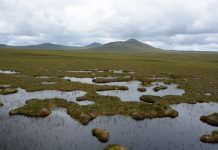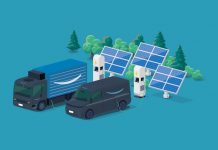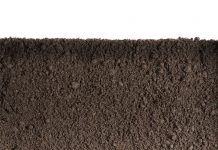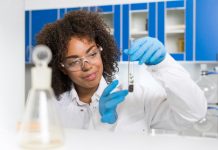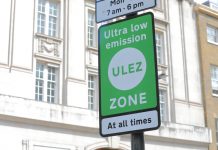Open Access Government produces compelling and informative news, publications, eBooks, and academic research articles for the public and private sector looking at health, diseases & conditions, workplace, research & innovation, digital transformation, government policy, environment, agriculture, energy, transport and more.
The Climate-Space-Security Nexus
Dr. Christine Nam (GERICS) discusses how climate risks can impact Europe’s burgeoning space sector, which in turn has cascading risks that can impact Europe’s peace and security.
Cooperation on the coastal tourism adaptation to climate change
The Climate Service Center Germany (GERICS) and the Blue Flag Programme cooperate on the coastal tourism adaptation to climate change.
GERICS: Towards resilient cultural heritage
Cultural heritage is an integral part of urban areas as an expression of their social, economic, and environmental development. Here, GERICS explain how they can help.
GERICS: Supporting Climateurope2 and standards for Climate Services
Climateurope2 is a 4.5-year Horizon Europe funded project that addresses the need for timely delivery and effective use of climate information
Machine learning helps to improve climate services
Machine Learning methods have received significant attention in the past few years as a game changer for product development and Climate Services.
The EU Taxonomy Regulation as a lever to foster private sector adaptation to climate...
To ensure a smooth transition to a low-carbon financial and economic system and to prepare for climate-related risks, companies must develop and implement appropriate management measures. The EU Taxonomy Regulation is here to ensure this.
Profound scientific climate solutions in application on the ground
Provision of operational services to support climate change adaptation in municipal practice.
Climate information for cultural heritage resilience
Lola Kotova from Climate Service Center Germany (GERICS) unpacks climate information for strengthening the resilience of cultural heritage in times of anthropogenic climate change, presenting in this vein a fascinating case study for Germany.
Understanding the impact of drought on forests: Bridging science and practice
Due to the very long rotation times of trees 100 years old or more, the forest sector is being particularly affected by the changes brought about by climate change, especially by the impact of drought.
Mounting water scarcity: A complex challenge requiring nuanced solutions
A sufficient freshwater supply is essential to ecosystems, societies, and economies. Given the continuous increase in global population, improved living standards and rampant economic growth, there is an ever-growing worry about water scarcity.
Biofuels as petroleum alternatives: Closing the carbon cycle with bacteria
Finding a way to close the carbon cycle is crucial in our steps towards a greener planet; researchers believe that filtering out petroleum and utilizing other options like biofuels we can help reduce our CO2 emissions.
Green hydrogen production offshore: developing accepted solutions
GERICS discusses the production of green hydrogen offshore for sustainable energy solutions in Germany.
A “Halloween-esque” Twist of Global Climate Change
Dr Pamela Lein discusses a sinister threat to human health as a result of pathogens introduced by global climate change.
The overlooked water-bound loss of carbon from peatlands
In this third contribution of a series of four, Bernd Lennartz, Haojie Liu and Franziska Tanneberger give insight into the water-bound loss of carbon from peat soils.
Amazon Leads eCommerce Sustainability with Electric Truck Rollout
Amazon is taking on climate change, one electric truck at a time. Explore how the eCommerce giant is moving toward a more sustainable future.
European Climate Prediction system project (EUCP)
GERICS connects stakeholders and researchers in the EU project EUCP (European Climate Prediction system project).
Could soil microbes be a solution to the climate crisis?
Research from Arpita Bose’s lab combines nature with the laboratory to innovate solutions to our global climate crisis
Much of the focus on climate change...
Agricultural and Environmental Science Careers for Non-Traditional Students
Dr. Elica Moss and Dr. Sanju Sanjaya discuss agricultural and environmental science careers for students at Alabama A&M University.
Improving air quality with Low Emission Zones
Yunex Traffic discuss the benefits to air quality with the implementation of low emissions zones in the UK's city centres.
Science for Climate Services and Action – Reflections on the COP26
Reviewing the impact of COP26 on climate services and what this means going forward for the pivotal role of science and science-based decisions.




